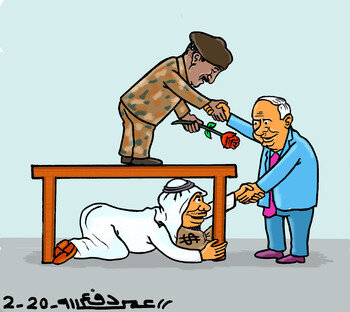Burhan-Netanyahu meeting stokes tensions in fragile Sudan coalition government

The news of the February 3 meeting between Lt. Gen. Abdel Fattah al-Burhan and Israeli Prime Minister Benjamin Netanyahu in Entebbe, Uganda caused a stir, especially since it took place just a few days after U.S. President Donald Trump presented the pro-Israel ‘Deal of the Century”.
No government of Muslim-majority Sudan has recognized Israel since independence in 1956. Sudanese soldiers have fought in Arab wars against Israel, while the capital, Khartoum, was the scene of a 1967 Arab League summit that called for “Three No’s”: no peace, no recognition, and no negotiations.
Immediately after the Burhan-Netanyahu meeting came to light, Sudanese officials distanced themselves from the summit, indicating it was a unilateral decision by Burhan.
According to the London-based Middle East Eye, Sudanese Prime Minister Abdalla Hamdok’s office denied receiving information about the meeting in Entebbe.
In another sign of protest the Director of the Foreign Policy Department of the Sovereign Council, Ambassador Rashad Faraj Al-Tayyib presented his resignation. “I resigned today because I can’t see the Israeli flag appear in Sudanese territory officially, and I can’t accept this clear violation of the Sudanese’s constant values of solidarity with the Palestinian people and rejection of the injustice of the Jewish state,” he said in a statement.
Palestinians living in Sudan have also reacted with shock.
Abu Eyad, a 50-year-old Palestinian restaurant owner in Khartoum, told MEE that Sudanese recognition of Israel would negatively affect the relationship between Palestine and Sudan.
“We enjoy very good ties with the Sudanese people and we still do believe that the majority of the Sudanese don’t support this step,” he told.
Sudan’s transitional government spokesman and minister of information, Faisal Mohamed Saleh, said that Hamdok was not aware and the meeting had been “a personal initiative”. Saleh added that foreign policy decisions, such as normalizing ties with Israel, are not part of the transitional government’s mandate.
The Sudanese Professionals Association (SPA), a powerful body that led the revolution described Burhan’s move as unconstitutional and a coup attempt against the civilian component of the government.
Meanwhile, a group of lawyers has filed a lawsuit against Burhan, citing a Sudanese law dating back to 1958 that bans relations with Israel. The law bans any political, military, trade ties with Israel.
The move for normalization of ties with Israel has also been condemned by the Communist Party.
Leave a Comment